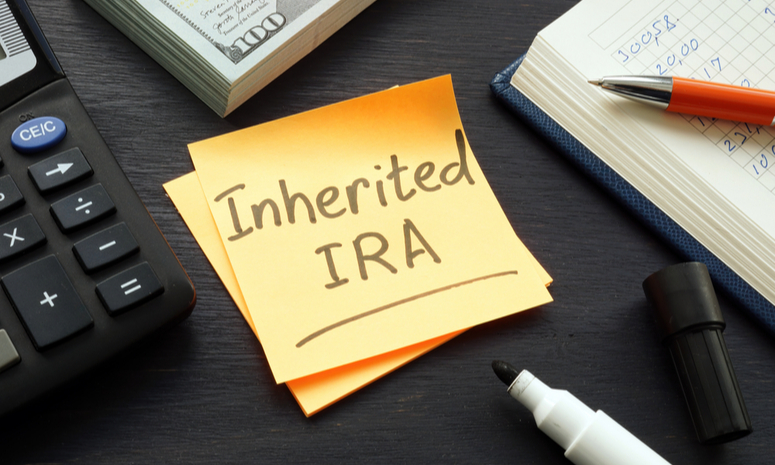Overview of The Roth IRA And Its Functions And Features
Dec 23, 2023 By Triston Martin
An IRA is a particular type of savings account that may be utilized solely for retirement purposes. Using after-tax income, you can contribute to a Roth IRA, a sort of tax-advantaged IRA.
The fundamental advantage of a Roth IRA is that, after the account has been open for at least five years, donations and gains on those contributions grow tax-free and can be withdrawn tax-free after age 5912.
What Is The Function of a Roth IRA?

You can fund a Roth IRA with money you have already paid taxes. You can invest and withdraw the proceeds tax-free once you reach retirement age. Multiple options exist for contributing to a Roth IRA, including:
- Standardized payments
- Spousal IRA contributions
- Transfers
- Rollovers
- Conversions4
You can't put anything other than cash into a Roth IRA; donations of stocks, real estate, or other assets are not allowed. Depending on the kind of IRA, the maximum yearly contribution allowed by the IRS is set each year and may be adjusted in the future.
Contributions To A Roth IRA

Once the money is donated to a Roth IRA, the account holder can choose to invest it in a wide range of financial product, including but not limited to mutual funds, CDs, money market funds, and even cryptocurrencies.
Please be aware that due to restrictions imposed by the IRS, you cannot make direct contributions of bitcoin to your Roth IRA. On the other hand, Bitcoin IRAs have recently emerged, making it possible to invest in cryptocurrencies through a retirement account.
Establishing a Roth IRA
A Roth IRA can only be opened at a financial institution where the IRS has granted IRA offerings. Financial institutions fall into this category if they are banks, brokerage firms, credit unions, or savings and loan organizations that the federal government insures.
People often establish IRAs through financial advisors. Whenever it is convenient for you, you can open a Roth IRA. However, contributions for a given tax year must be made by the IRA owner's tax filing date. Commonly, this date falls on April 15 of the following year.
Is There Roth IRA Insurance?
If your IRA is housed in a financial institution, you should know that IRAs are insured differently than other deposit accounts. Consequently, IRAs have less comprehensive protection.
Suppose a client owns $200,000 in a CD within a conventional IRA and $100,000 in a Roth IRA within a savings account at the same financial institution. In that case, the consumer has $50,000 in potentially at-risk assets without FDIC coverage.
What Kind of Money Can Be Put Into a Roth IRA?
The IRS controls the maximum amount and types of contributions that can be made to a Roth IRA. Earned money is the only source of funding for a Roth IRA. Amounts in Box 1 of a person's W-2 form are considered to be their net income. Pay for an independent contractor, partner, or shareholder in a pass-through entity is calculated as the net earnings from the firm minus any deduction permitted for contributions made to retirement plans on the individual's behalf, less than half of the individual's self-employment taxes.
Who Can Have a Roth IRA and Why?
Those who fulfill the qualifications for filing status and modified adjusted gross income can put money into a Roth IRA regardless of whether or not they are eligible for traditional IRA contributions. The IRS frequently revises the threshold at which taxpayers are ineligible to contribute. 4 The numbers for 2021 and 2022 are displayed in the following chart.
Earnings-sharing Roth IRA
A spousal Roth IRA allows married people to pool their money and contribute more significantly to retirement accounts. One spouse can contribute to the other's Roth IRA if they make too little money. Contributions made by a spouse to a Roth IRA are subject to the same restrictions and regulations as contributions made by single individuals.
Payouts: Eligible Withdrawals
The money you put into your Roth IRA is yours to take out whenever you choose, without tax or penalty. If you withdraw what you've contributed, the entire payout will be tax-free and penalty-free, regardless of age or the amount of money in the account.
Traditional IRA vs. Roth
Whether a regular IRA or a Roth IRA is preferable depends on the individual's current tax band, their predicted retirement tax rate, and their preferences. The total tax avoided in retirement may be larger than the income tax paid in the present, making the Roth IRA more attractive to those who expect to be in a higher tax band once they retire.

Jan 24, 2024 Susan Kelly

Dec 03, 2023 Triston Martin

Dec 02, 2023 Susan Kelly

Oct 21, 2023 Triston Martin

Dec 23, 2023 Triston Martin

Dec 29, 2023 Susan Kelly